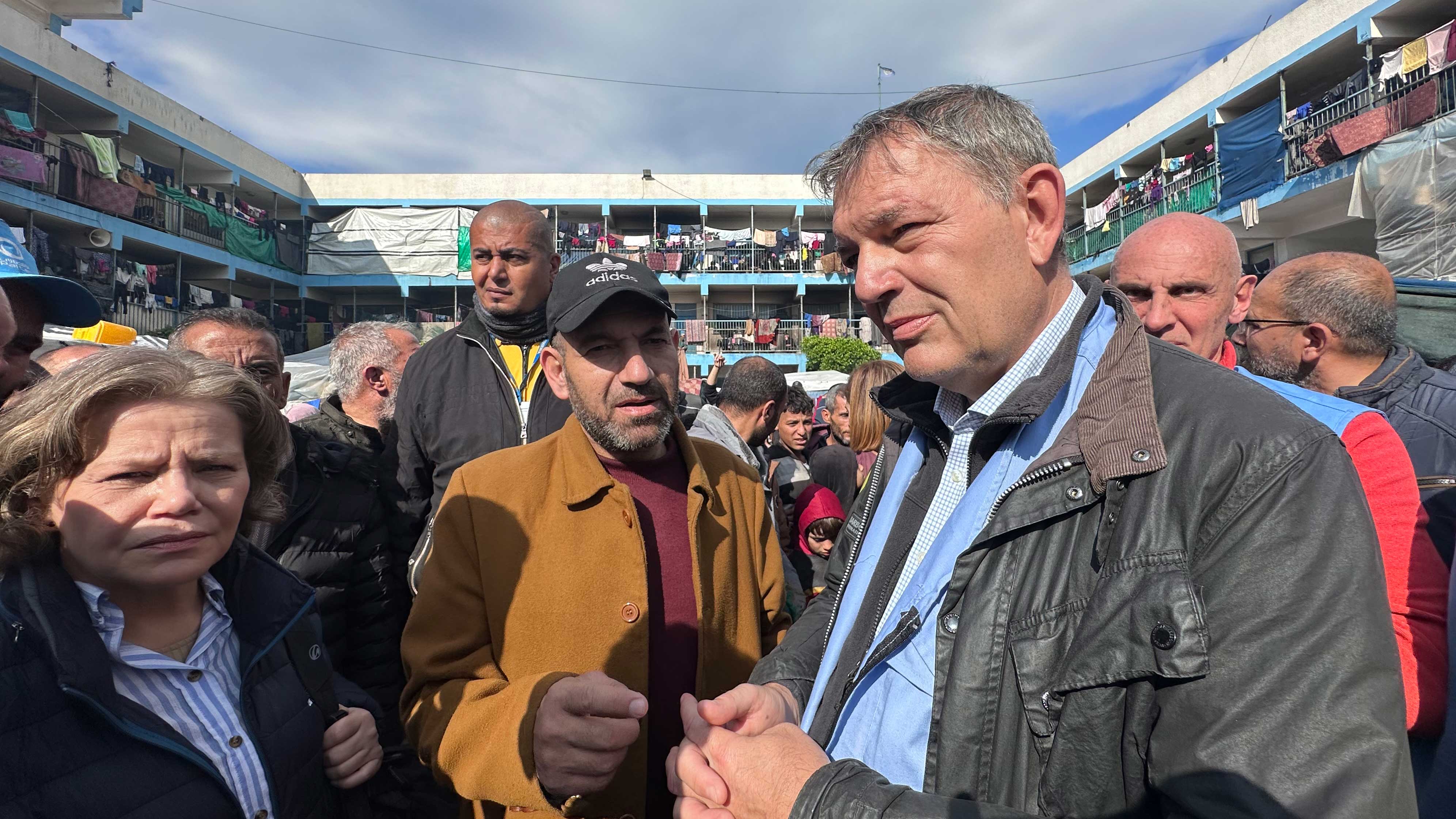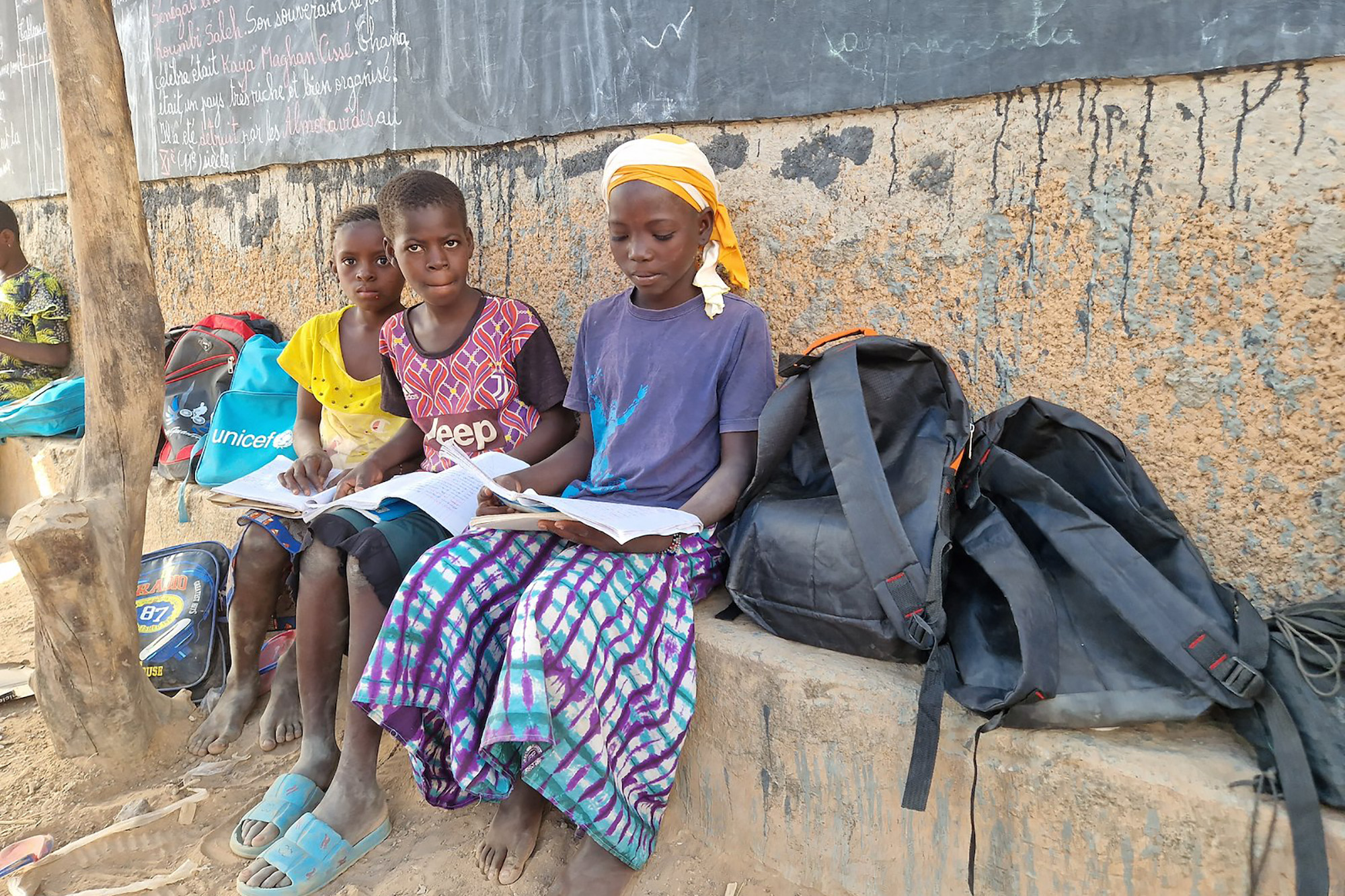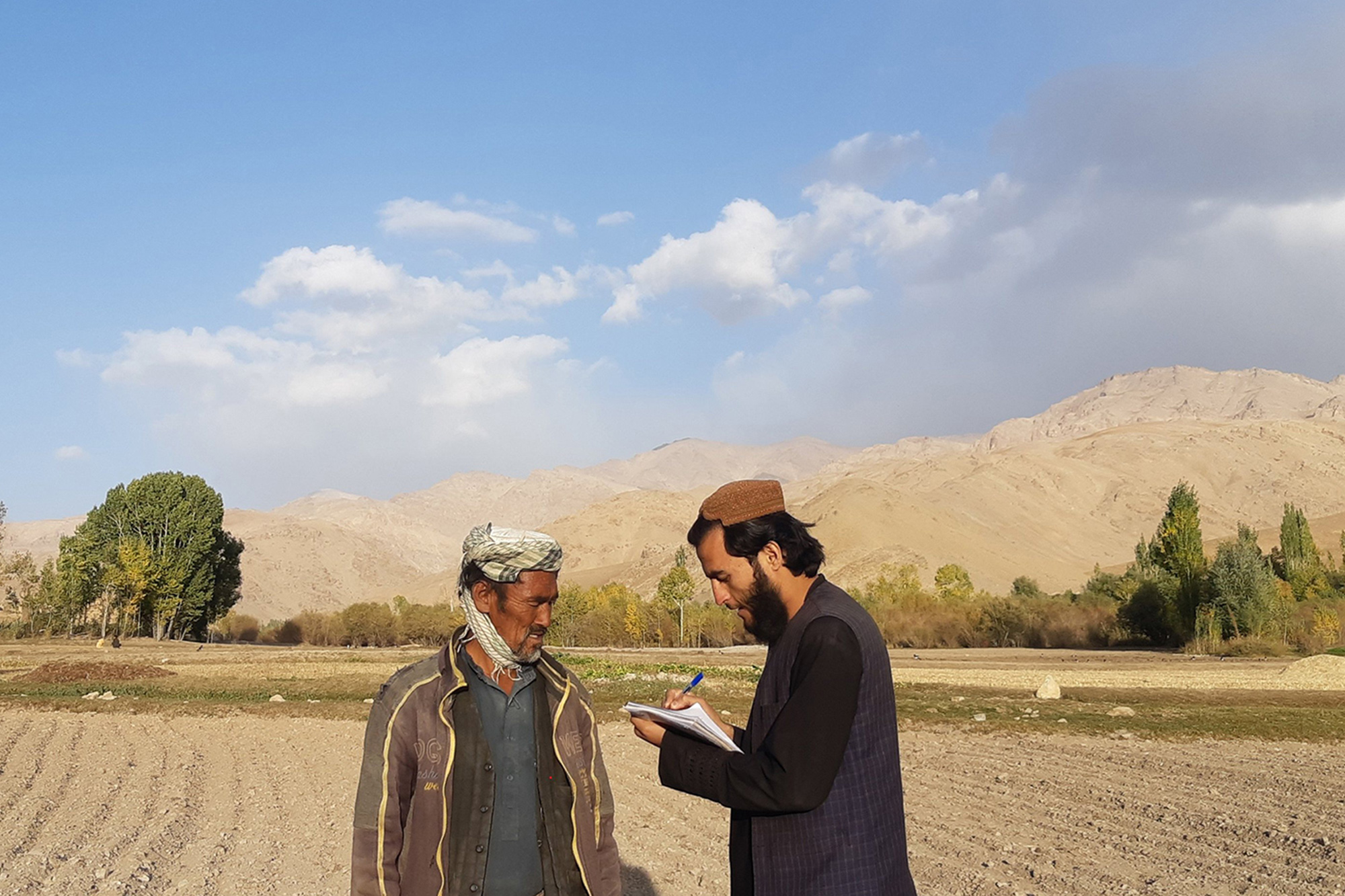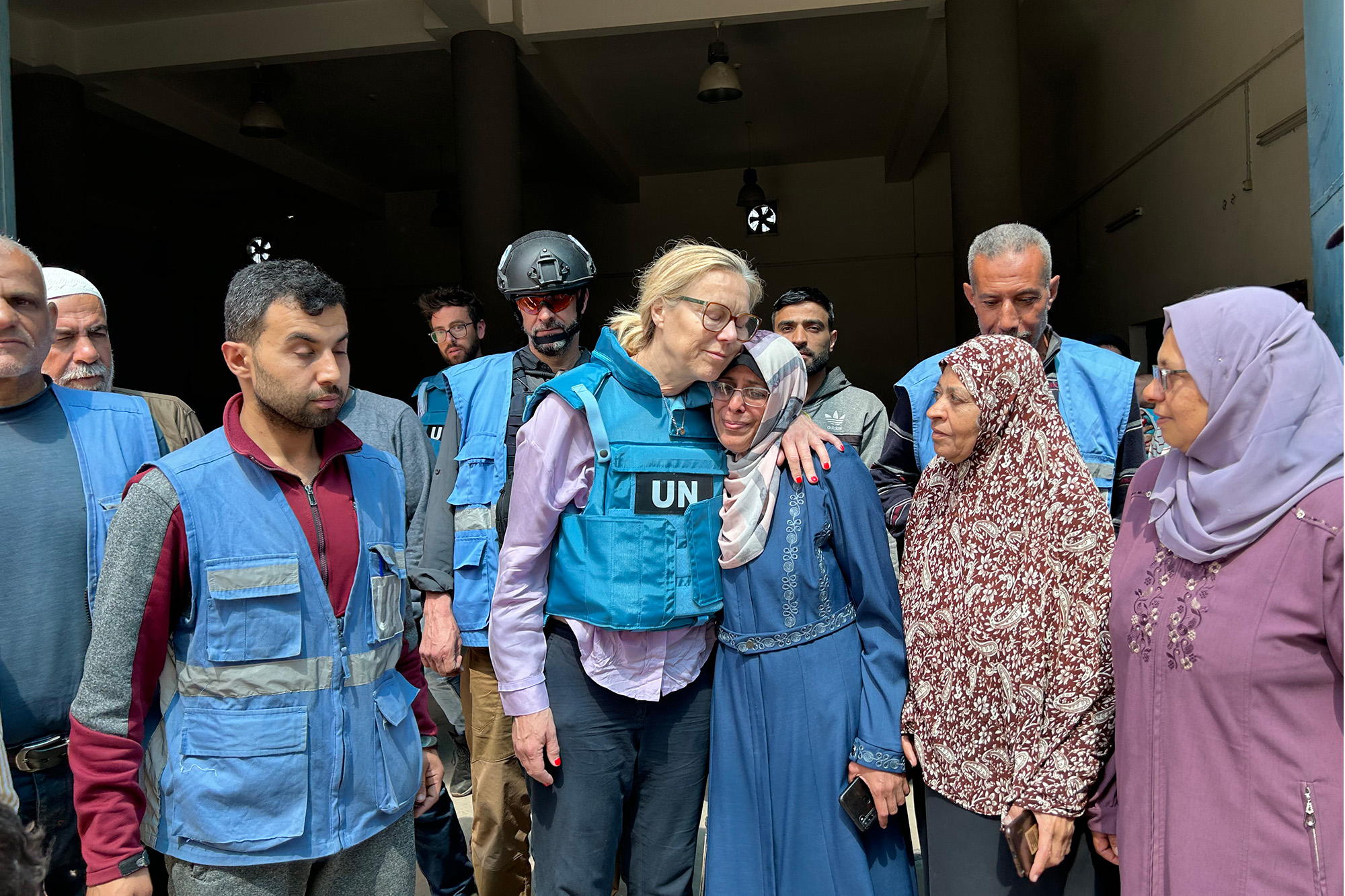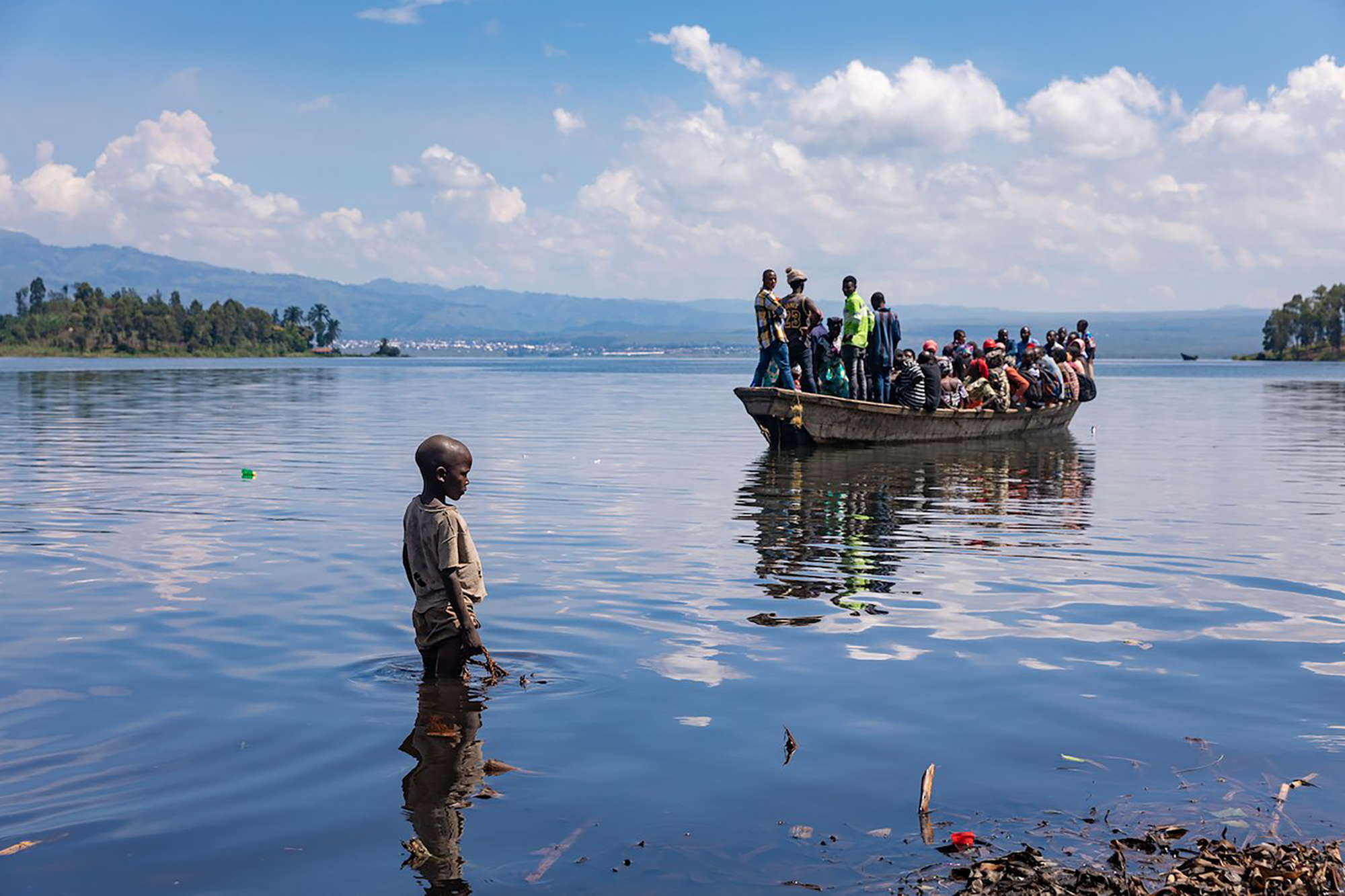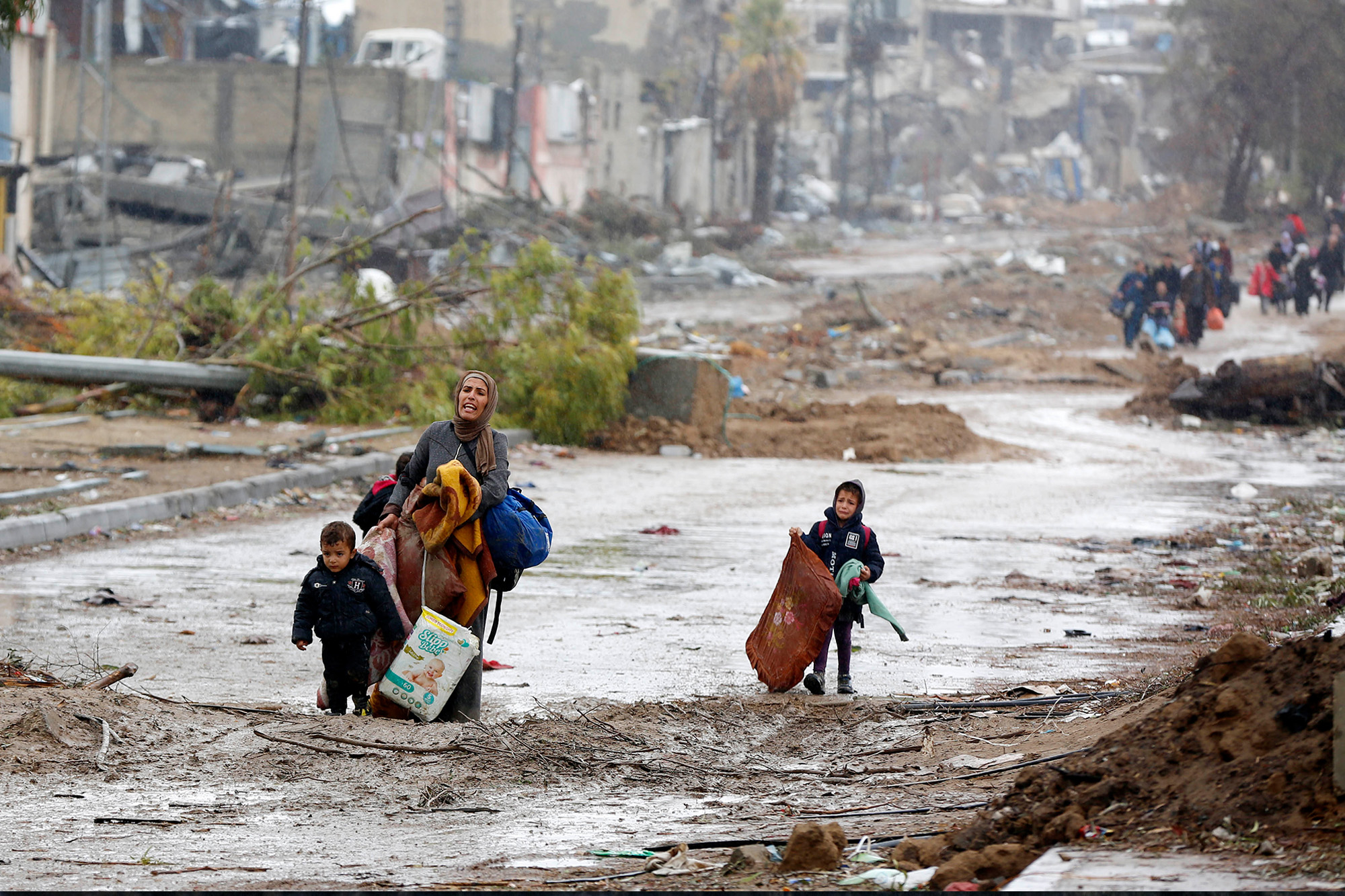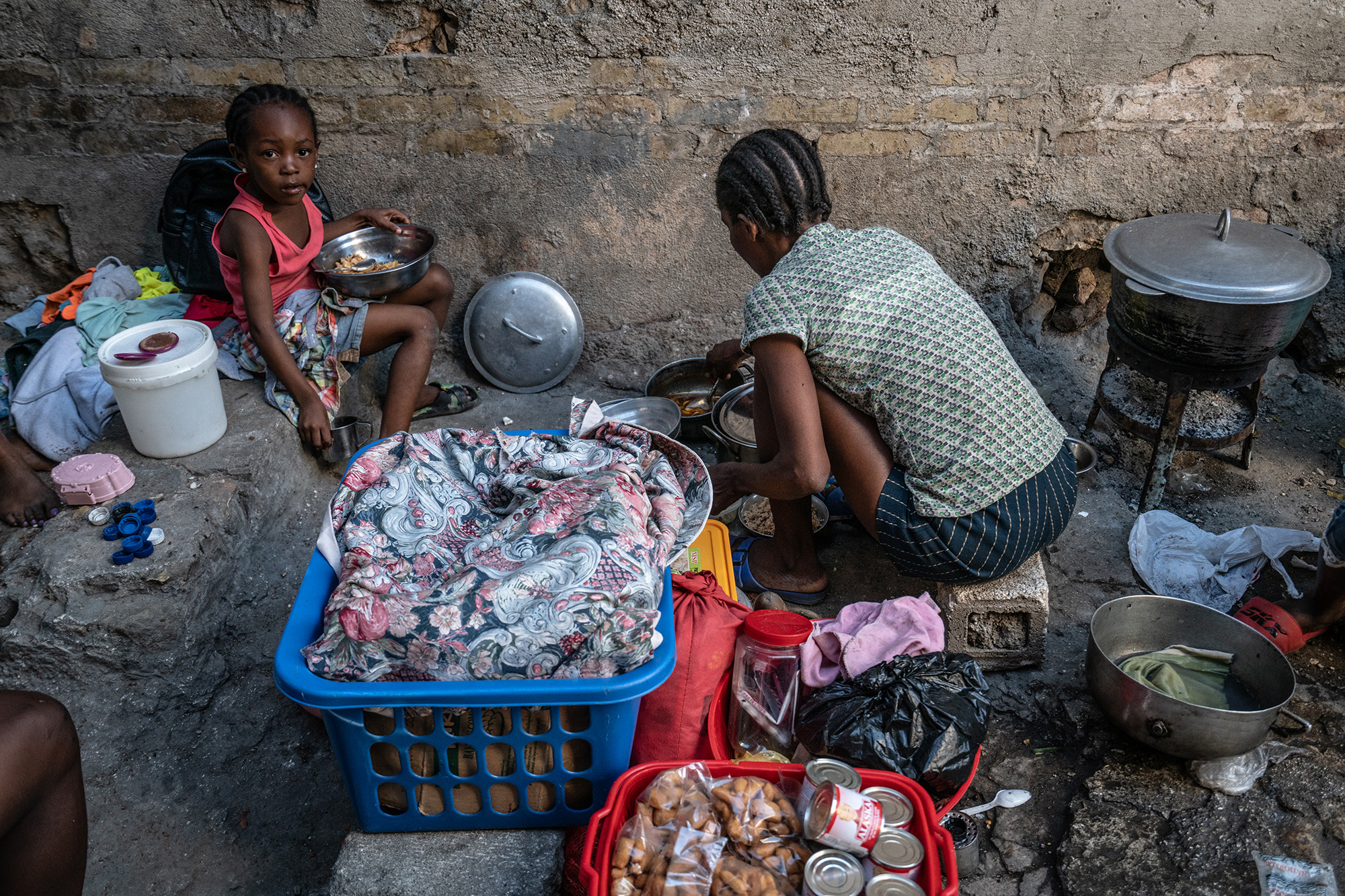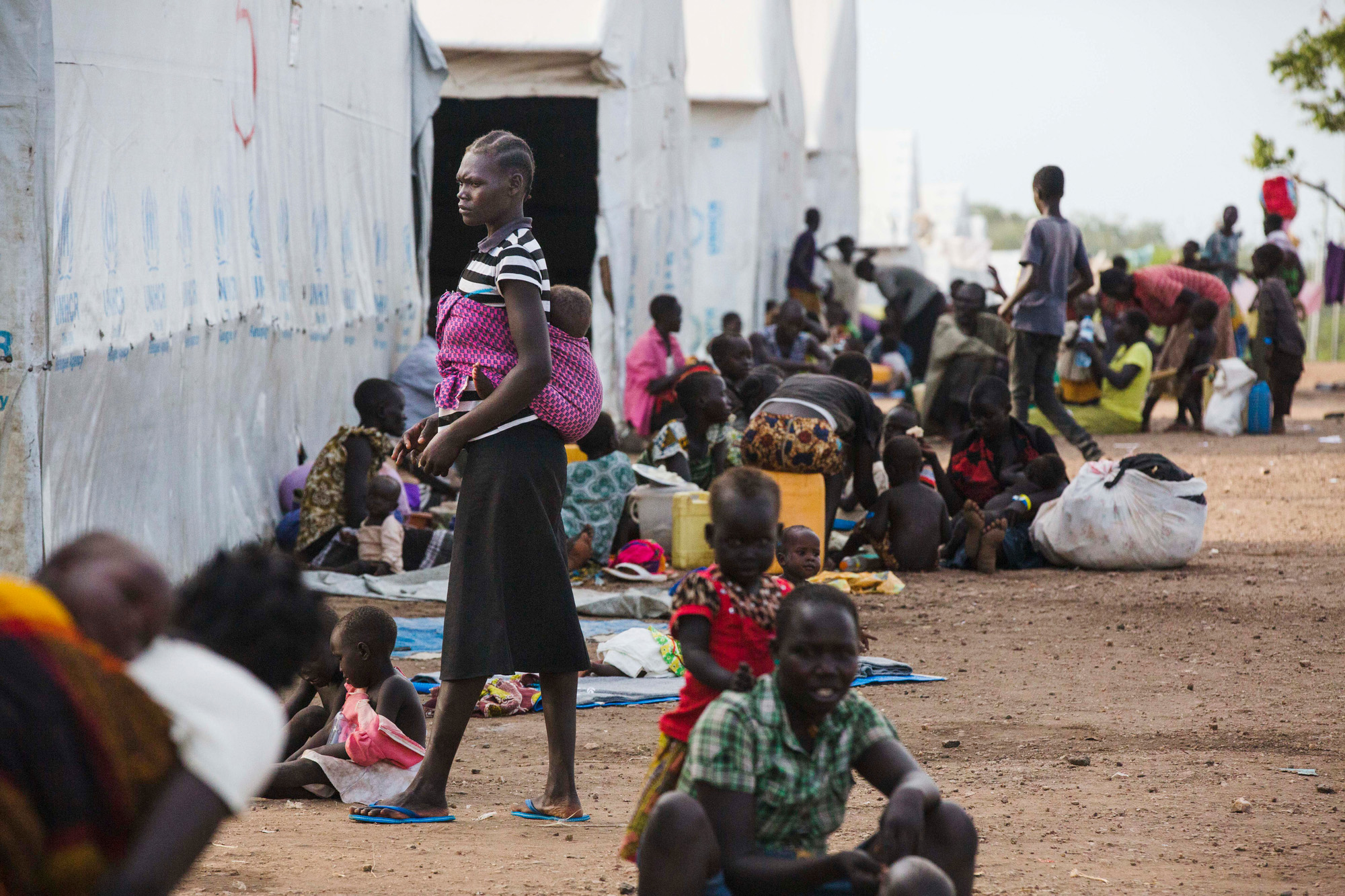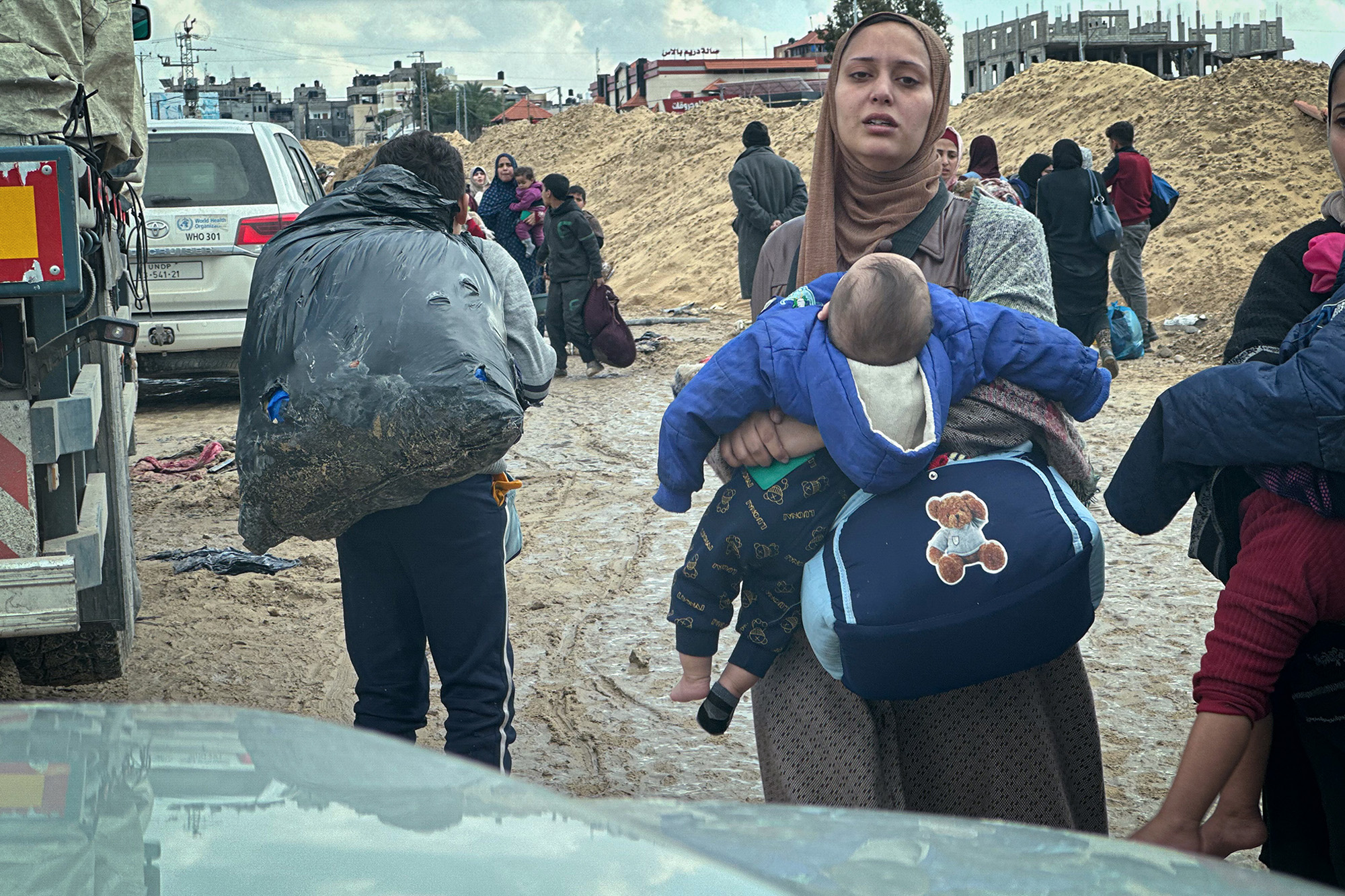World Food Programme teams in the Caribbean are assessing the devastating aftermath of Hurricane Beryl, providing crucial humanitarian aid to communities severely impacted by the storm's destructive force.
Humanitarian Aid
Amid recent restrictions in Afghanistan, Mumtaz, Ahmad, and Zeyba's lives were upended, but a World Bank and UNOPS project offers a lifeline through community-driven employment and support initiatives.
Since 2017, a wave of violence has interrupted education, destroyed crops and public infrastructure, impacted livelihoods and forced people to flee their homes in northern Mozambique. More than 670,000 people are still displaced and left an estimated 1.3 million people in urgent need of humanitarian assistance. Attacks by armed insurgents have caused damage to infrastructure and disrupted the provision of basic services. The Northern Crisis Recovery Project is responding to these urgent humanitarian and development needs.
"What worries me a lot is whether we are focusing on any given day the crisis of today, and forgetting about the crisis of yesterday and the day before [...] whether we are forgetting the crises that are not in the news today."
Big or small, Joyce Msuya has always found ways to give back. Now Assistant Secretary-General for Humanitarian Affairs and Deputy Emergency Relief Coordinator in OCHA, she oversees the global response to the world’s worst crises.
From Gaza to Ukraine, Haiti to Sudan, the UN estimates 300 million people around the world are in need of life-saving assistance and protection. In this episode, Joyce reflects on keeping hope alive despite waking to fresh crises every day, on the shocking impacts of climate-related extreme weather, and on the long-term benefits of a strict boarding school.
Photo: ©OCHA/Marc Belanger
In her coastal home in Mokha, Zahara is busy cooking and caring for her husband, who is in frail health, and her extended family. Zahara's family, along with three other households, is a close-knit community united by family ties and mutual support. Over a year ago, the International Organization for Migration (IOM) provided them with a new transitional shelter that provides physical protection, security, and privacy. With their new shelter, they have found a haven from Mokha's strong winds and torrential floods, as well as the privacy they have longed for amid the bustling life of communal living.
“[...] yet we are here seeing unfolding under our watch, our eyes, one of the fastest evolving looming famines, which has been completely fabricated. It's man-made. And which can easily be reversed through political will and political decision. It is deeply frustrating, but it's outrageous and makes me very angry [...] ”
Philippe Lazzarini holds one of the most challenging positions in the whole of the United Nations. As head of UNRWA, he is leading the backbone of the humanitarian operation in Gaza. Following the devastating terror attacks by Hamas and others on 7 October, Israel’s military operations in Gaza have brought unspeakable death and destruction. 2.2 million Palestinians are in the midst of an epic humanitarian catastrophe. In this episode, Philippe Lazzarini reflects on the trauma of the past months and the human cost of war.
“Ceasefire, ceasefire, ceasefire. If we have a ceasefire and the opening of the crossing, and we can flood assistance to the Gaza Strip, we would be able to prevent this catastrophe.”
Photo credit: ©UNRWA/Hussein Owda
Boulsa City, in Burkina Faso, has become a reception center for people fleeing surrounding villages due to blockades, poor road conditions, and lack of basic services. Over 50,000 displaced people have arrived in the city, and the authorities are acquiring land to set shelters up temporary shelters. Schools and administrative buildings are currently being used to house the displaced, but overcrowding and lack of hygiene facilities remain a challenge. The humanitarian community assisted 2.9 million people in 2023, but an estimated 6.3 million people will require assistance this year in Burkina Faso.
On 7 October 2023, two 6.3 magnitude earthquakes hit western Afghanistan, causing loss of lives, injuries, and damages. 1,384 people died and more than 21,500 homes were destroyed, affecting around 154,000 people. The Food and Agriculture Organization of the United Nations (FAO) completed a rapid impact assessment of the damage caused to people, livestock, and crops within two days of the disaster, thanks to the Data in Emergencies (DIEM) Hub. DIEM combines remote sensing and primary data to provide a granular and rapid understanding of shocks, allowing for more informed and rapid responses.
As the war in Gaza reaches a 200-day mark, the Security Council is set to receive a briefing today from Sigrid Kaag, the Senior Humanitarian and Reconstruction Coordinator for Gaza. Ms. Kaag will provide a firsthand account of the current humanitarian situation and challenges to aid and reconstruction efforts in Gaza. Since assuming her role, she has been working with UN agencies, NGOs, and member states to improve aid delivery in Gaza. The ongoing conflict has led to nearly 34,000 deaths, including 10,000 women and nearly 14,000 children, and has brought the population to the brink of famine.
Minova, a cholera-endemic area in the Democratic Republic of the Congo, is experiencing a resurgence of the disease due to the unexpected arrival of more than 120,000 people since February. The number of cases has increased significantly, and the area is now isolated and difficult to access due to flooding, landslides, and armed groups. NGOs and UN agencies are deploying teams to support the emergency response, including setting up safe water distribution points, cholera treatment centers, and awareness-raising activities. Thanks to the efforts of humanitarians and local health workers, the number of cases in the area decreased at the end of March. But given the scale of the task, how long can humanitarian organizations continue to help people in need?
The Gaza conflict has been going on for over six months with devastating consequences. Thousands of Palestinian women have been killed, leaving children orphaned. Over a million women and girls face dire living conditions with limited access to necessities like food and medical care. Destruction of infrastructure has exacerbated the crisis, leaving many injured individuals without treatment. Urgent calls for humanitarian aid and a ceasefire are needed to prevent further suffering. Escalating violence in the West Bank and a potential regional conflict between Israel and Iran are also of concern.
As the Haitian capital of Port-au-Prince grapples with the staggering levels of violence that began on February 29, humanitarian aid is more important than ever. The World Food Programme (WFP) and its partners are delivering hot meals every day. But funding shortfalls are threatening WFP's ability to sustain its operations. The Pan American Health Organization/World Health Organization (PAHO/WHO) is supporting existing hospital centres amid relentless attacks on medical facilities. In mid-March, more than 800 kg of blood bags, medicines and other medical supplies were airlifted from the Dominican Republic. UNICEF and the International Organization for Migration (IOM) have distributed more than 3.5 million litres of drinking water to more than 60,000 displaced people.
The crisis in Haiti is escalating at an alarming rate. The situation is worsening with increasing levels of violence at the hands of armed gangs. Schools, hospitals, police stations, shops and Government buildings are being attacked. In 2023, the country saw the highest number of killings, kidnappings, lynchings and gender-based violence incidents in recent years. Photographer Giles Clarke has visited Haiti twice in the last six months and captured images depicting the current state of Port-au-Prince.
The South Sudanese refugee population, with over 65% children, is the largest refugee situation in Africa. They live in precarious conditions, worsened by drought and food insecurity. This protracted situation is Africa's largest refugee crisis. Despite efforts toward peace, South Sudan still faces violence, food insecurity, and flooding. To help alleviate the situation, the UN Refugee Agency (UNHCR) will launch the South Sudan Regional Refugee Response Plan on Thursday, March 28. The humanitarian initiative will address the needs of 2.2 million refugees in 2024.
Olga Cherevko was part of a four-person of the United Nations Office for the Coordination of Humanitarian Affairs (OCHA) team that traveled to the Gaza Strip in January to support the response to its unprecedented humanitarian crisis. Olga, who previously worked for the UN Agency for Palestine Refugees (UNRWA) in Gaza, from 2014 to 2017, describes her experiences and the unbearable reality that millions of people in Gaza face each day. She found the reality unbearable. Gaza is no longer a safe place, and people are worried about their future. The area has been destroyed by years of fighting, leaving behind ruins where once stood homes, shops, and places of worship once stood.





